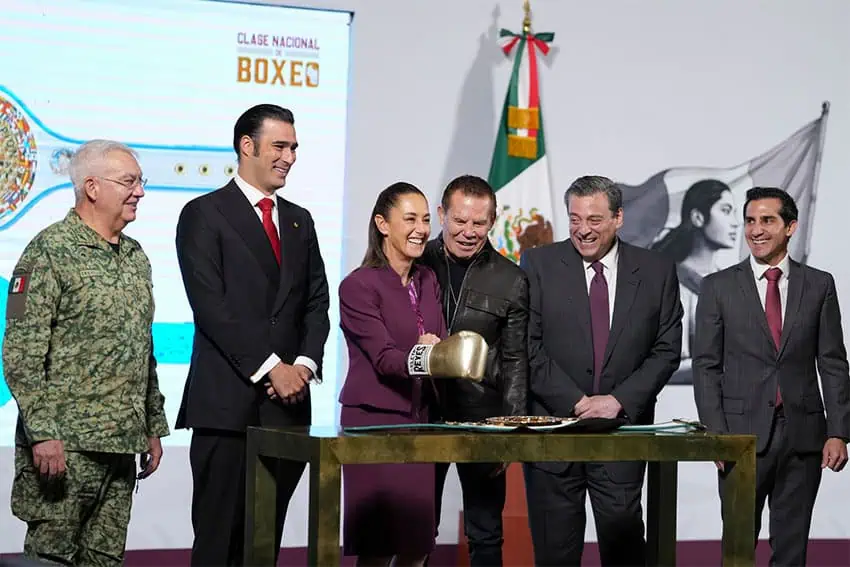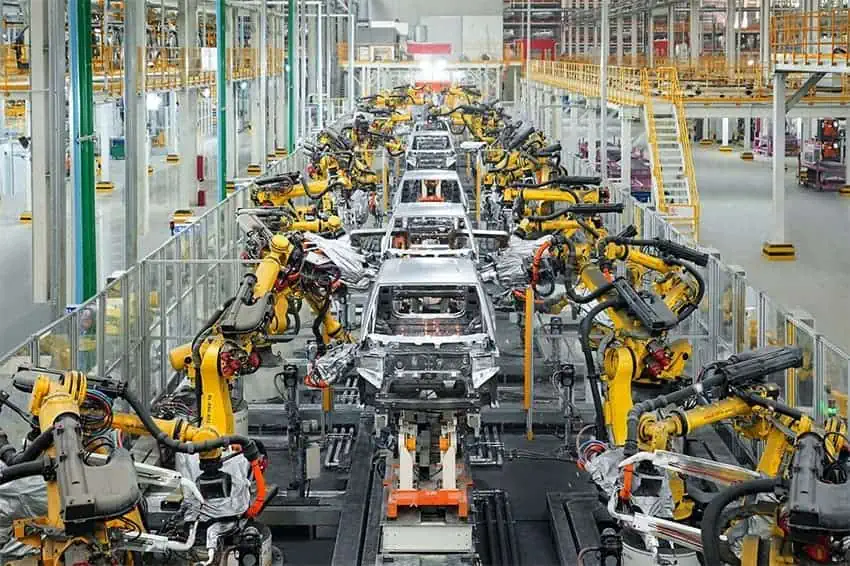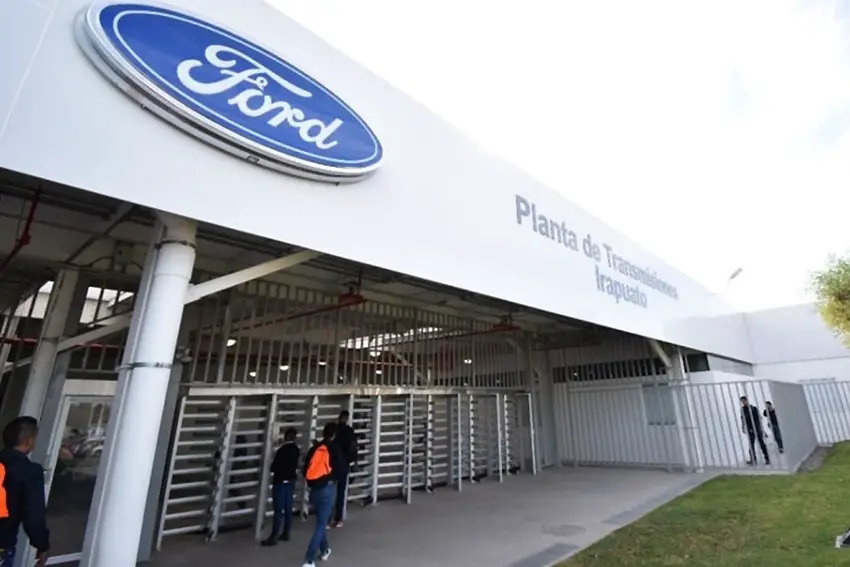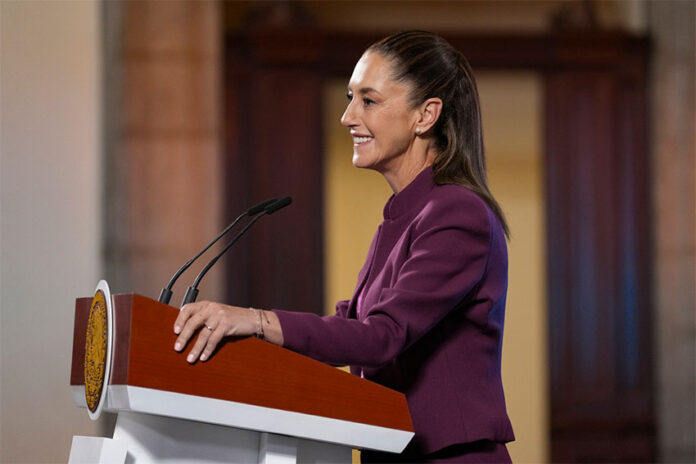Mexican boxing legend Julio César Chávez and World Boxing Council president Mauricio Sulaimán Saldivar attended President Claudia Sheinbaum’s Friday morning press conference to promote the “National Boxing Class” that will take place in public squares across the country on Sunday, April 6.
Sheinbaum said she didn’t yet know whether she would don some gloves herself, but a reporter nevertheless quipped “watch out Bukele,” a reference to a nascent feud with the president of El Salvador.

During her Q&A session with reporters, the president spoke about United States President Donald Trump’s latest tariff announcement, the importance of the USMCA free trade pact — which is currently under attack by Trump — and the federal government’s growing tax revenue.
‘Any tariff’ affects Mexico-US auto sector integration
Two days after Trump announced a 25% tariff on imports of vehicles and auto parts, Sheinbaum emphasized the high level of integration between the auto industries in Mexico and the United States.
“Mexico is the country with the most integration with the United States in the automotive industry,” she said.
She noted that auto parts frequently pass back and forth across the border during the vehicle manufacturing process.
“It’s integration that has been going on for decades,” Sheinbaum added.
“Obviously any tariff affects that integration and both economies. It affects the United States and Mexico,” she said.
“So of course we don’t agree with this unilateral tariff decision,” Sheinbaum said.
The USMCA is the ‘tool’ that allows North America to compete with China
Sheinbaum told reporters that her government is seeking to strengthen the USMCA free trade pact, even as Trump seemingly adopts more protectionist “America first” positions by the day.
“The United States-Mexico-Canada Agreement is the tool that allows … North America to compete with other regions of the world, particularly China, which is also a large manufacturer of cars,” she said.
“What we have always said is that we don’t compete among ourselves, we complement each other to strengthen the economies of the three countries,” Sheinbaum said.

She said that her government, in talks with its United States counterpart, is seeking to avoid an adverse impact on Mexico-U.S. auto sector integration in order to “protect jobs in Mexico and jobs in the United States.”
“That’s always been our argument,” Sheinbaum said.
Economy Minister Marcelo Ebrard said Thursday that the government would seek “preferential treatment” for Mexico, even as Trump appears determined to change what he sees as an unfair status quo in the United States’ trade relationships with most, if not all, of its trading partners.
As Mexico News Daily reported, and Ebrard emphasized at the president’s Thursday morning press conference, U.S. content in vehicles assembled in Mexico (and Canada) will be exempt from the 25% duty, lowering the effective tariff on vehicles made in Mexico.
Mexico thus has already been afforded some “preferential treatment” — that is if (and it’s a big if) the United States’ violation of the USMCA — an agreement Trump personally signed — can be ignored.
US automakers will be most affected by tariff, Sheinbaum says
Sheinbaum said that Trump’s auto tariff will affect Mexico more than any other country due to its high levels of integration with the United States in the production of vehicles.
She added that United States automakers with a presence in Mexico, such as General Motors and Ford, will bear the brunt of the auto sector protectionism.

While Mexico continues to seek a deal with the United States to return to free trade conditions, Sheinbaum reiterated that she is preparing a “comprehensive response” to U.S. tariffs, which are already in effect for Mexican steel and aluminum and goods not covered by the USMCA.
She has said she will unveil that response on April 3, the day after the United States intends to impose reciprocal tariffs on the goods it imports from its trading partners around the world.
Tax collection ‘going very well’
A reporter asked the president whether the United States “unilateral decision” to impose tariffs on imports from Mexico would affect her government’s economic objectives and infrastructure investment plants.
“Not at all. The economy of Mexico is very strong,” Sheinbaum responded.
She told reporters that she looks at government revenue data every day and that tax collection is currently 6% higher than it was a year ago “in real terms.”
“I thank the people because they’re paying their taxes,” Sheinbaum said.
“… The truth is tax collection is going very well,” she said.
“And, well, we’re building seven more hospitals, the railroads, highways, water projects, housing, and that helps the economy a lot,” Sheinbaum said.
By Mexico News Daily chief staff writer Peter Davies (peter.davies@mexiconewsdaily.com)
